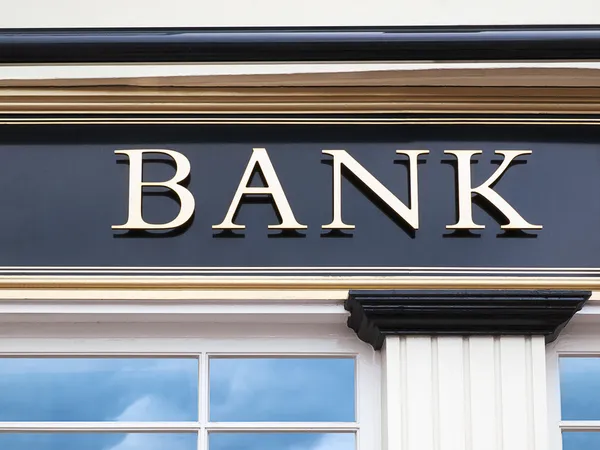Don’t Put Your Money in the Bank: Why Your Money in the Bank is More Harmful than Helpful
For years, we have been advised to keep our money in banks. However, it is a misconception that keeping money in banks is the best way to secure finances. Truth is banks use the money deposited in their accounts to make investments and generate profits for themselves. Thus, while depositors earn only meager interest on their savings, banks reap huge profits.
Furthermore, depositors’ savings in the bank are not secure. In times of economic downturns, banks can go bankrupt and depositors can lose their money. It is therefore better to invest in stocks, bonds, or real estate, where returns on investment are potentially higher than the meager interest from bank savings. In the long run, investments offer better protection against inflation, which is not the case with keeping money in banks. Therefore, the decision to invest instead of keeping money in banks can make all the difference between securing a comfortable future and simply struggling to survive.
Table of Content
- Intro
- Initial Notion about Keeping Money in Banks
- The Problem with Keeping Money in the Bank
- How Banks Benefit from Your Money and You Don’t
- Investing in Stocks, Real Estate or Other Investment Instead of Keeping Money in Bank
- Why It’s Better to Owe the Bank Than to Keep Money in Bank
- Conclusion
Initial Notion About Keeping Money In Banks
For many people, the initial notion about keeping money in banks is that it’s the safest and most secure way to protect their hard-earned cash. After all, banks have been around for centuries and are highly regulated, right? Well, while it’s true that banks offer some advantages such as FDIC insurance, there are several reasons why this initial notion may not be as sound as it seems.
One of the main reasons why people believe that keeping money in banks is a good idea is because of the perceived security. Banks are seen as stable institutions that will always be there to protect our money. However, it’s important to remember that banks are profit-driven businesses. They make money by lending out the money that we deposit, and they charge interest on the loans they give out. This means that they have a vested interest in making loans, rather than keeping our money safe.
Another common belief is that keeping money in banks is the best way to save for the future. Many people rely on the interest earned from their savings accounts as a source of income or a way to grow their wealth. However, the reality is that interest rates on savings accounts are extremely low, often not even keeping up with inflation.
The Problem With Keeping Money In The Bank
Keeping money in the bank may seem like a good idea for many people, but in reality, it comes with many drawbacks. Some problems associated with keeping money in banks are:
- Low-interest rates: One major issue is the low-interest rates that banks offer on savings accounts. Even though banks ensure the safety of your money, it doesn’t mean that your savings will grow over time.
- Inflation: Inflation is another challenge that diminishes the purchasing power of your money. Inflation increases the prices of goods and services, and your money won’t be able to buy as much in the future as it can now.
- Bank charges: Another disadvantage of keeping money in the bank is the high fees that banks charge. Account maintenance fees, ATM usage fees, and overdraft fees can eat up your savings. It’s also common for banks to change their fee structures, which can leave customers surprised and annoyed. Banks operate as profit-driven businesses, which means they’re more interested in making money from your money. Instead of focusing on keeping your savings secure, they invest deposited money to generate profits for themselves.
- Fractional reserve: Fractional reserve banking is another factor that shows why keeping money in the bank isn’t a smart idea. Banks can lend out more money than they have in deposits, allowing them to make money on imaginary funds. It’s a risky approach that puts customers’ money at risk and shows how vulnerable banks are to economic crises.
- Limited access: There may be times when you need to access your money, but you encounter restrictions, and you might hear phrases like, “I’m sorry, we can’t provide all this money.” The reason for banks refusing to provide the full amount is that it isn’t readily available; they’ve used it for their benefit. When your money is in the bank, you often have limited access to it and may face withdrawal restrictions and penalties.
- Bankruptcy: It’s very possible for banks to go bankrupt in times of economic downturns. When banks go bankrupt it leaves depositors without their money. That’s why it’s vital to diversify your investment portfolio and not rely solely on banks.
Rather than sticking to the traditional approach of keeping your money in the bank, it’s essential to explore other options that provide higher returns, flexibility, and greater security for your money.
How Banks Benefit From Your Money And You Don’t
It may come as a surprise, but banks actually benefit more from your money than you do. While you may think that keeping your cash in a bank account is a safe and secure option, the reality is that banks have much to gain from your deposits. Here are ways banks benefit from your money:
It may come as a surprise, but banks actually benefit more from your money than you do. While you may think that keeping your cash in a bank account is a safe and secure option, the reality is that banks have much to gain from your deposits. Here are ways banks benefit from your money:
- Loans: One of the ways banks benefit from your money is through the loans they provide. When you deposit money into a bank, they don’t just hold onto it for safekeeping, they use it to make loans to individuals and businesses. This means that while your money is sitting in the bank, it is actually being used by others to finance their projects and ventures. The interest that these borrowers pay on their loans is where banks make their profits.
- You may be thinking, “Well, what’s wrong with that? Isn’t it good that banks are lending money to help stimulate the economy?” While it’s true that lending is an important function of banks, it’s worth considering who benefits the most from these loans. Oftentimes, it’s the borrowers who stand to gain the most, while the interest you earn on your savings account may not even keep up with inflation.
- Lending advantages: Furthermore, banks have a unique advantage when it comes to lending. They can create money out of thin air through a process called fractional reserve banking. Essentially, this means that banks can lend out more money than they actually have in deposits. For every dollar you deposit, banks can lend out several more dollars. This allows them to earn interest on money that doesn’t actually exist.
- High interest rates: The interest rates banks charge on loans are typically much higher than the interest rates they offer on savings accounts, which are often exceedingly low. Consequently, banks can reap substantial profit margins from the loans they provide, while the interest you earn on your savings account may not even keep pace with inflation.
In essence, banks are not doing you a favor; in fact, you are the one providing them with a significant benefit. You assist banks, but they reward you with meager returns. Consider leveraging your money to your advantage this year; if banks can do it, so can you.
Investing In Stocks, Real Estate Or Other Investment Instead Of Keeping Money In Bank
If you’re frustrated with the meager interest rates and accompanying fees associated with parking your money in a bank, it may be time to explore alternative avenues. Investing in stocks, real estate, or other assets can potentially offer much higher returns on your investment and help you build your wealth over time.

Investing in stocks: Despite the inherent risks, stocks come with the potential for substantial gains. When you invest in stocks, you acquire a partial ownership stake in a company, which means you can benefit from its growth and success. Over time, as the company performs well, the value of your stocks can appreciate significantly. This can yield a much more lucrative return on investment compared to the minimal interest rates typically offered by banks.
Real estate: Real estate is another investment option that can provide substantial returns. When you invest in real estate, whether it’s residential, commercial, or rental properties, you have the opportunity to earn passive income through rental payments or appreciation in property value. Real estate investments can generate a steady stream of income and offer the potential for long-term growth, making them a compelling alternative to keeping your funds in a bank.
Mutual funds: Mutual funds or exchange-traded funds (ETFs), can also be a good option for diversifying your portfolio. These investment vehicles allow you to invest in a variety of assets, such as stocks, bonds, or commodities, without having to hand-pick individual investments yourself.
While it’s important to note that all investments come with risks, investing in stocks, real estate, or other investments offers the potential for much higher returns than simply keeping your money in a bank. By taking advantage of the opportunities available in the market, you can grow your wealth and achieve your financial goals more effectively.
Why It’s Better to Owe the Bank Than to Keep Money in Bank
If you’re still not convinced that keeping your money in the bank is a bad idea, let me introduce you to an alternative: owing the bank. Yes, you read that right. It’s actually better to owe the bank than to keep your money there. How to owe the bank? I will explain:
When you keep your money in the bank, it sits there idly, earning little to no interest. It’s essentially like burying your money in the ground and expecting it to grow. But when you owe the bank, you’re taking advantage of their lending capabilities and putting your money to work. By taking out a loan from banks, you can use the funds for investments or other opportunities that have the potential for much higher returns. Let’s say you have $10,000 in a savings account that earns a measly 0.1% interest. After a year, you would have earned a paltry $10 in interest. On the other hand, if you took out a $10,000 loan from the bank and used it to invest in stocks or real estate, you could potentially earn a much higher return. Even after accounting for the interest you would pay on the loan, your investment gains could far outweigh the interest earned on your savings account.
By harnessing the bank’s financial resources through a loan, you can build wealth through debt like millionaires do. This strategy is commonly employed by millionaires or experienced investors who comprehend the benefits of borrowing to invest. Instead of allowing your money to languish in a bank account, you set it in motion and optimize its growth potential.
Are there Risks Involved in Borrowing?
Of course, there are risks involved with borrowing money and investing. Market fluctuations, economic downturns, and other factors can impact the value of your investments. It’s important to carefully consider your financial situation, risk tolerance, and investment knowledge before pursuing this strategy. But for those who are willing to take on a calculated risk, owing the bank can be a smarter financial move than simply keeping your money there.
So, the next time you think about putting your money in the bank, consider the alternative: owing the bank. By leveraging bank loans and putting your money to work through investments, you can earn more money and increase potential for higher returns.
Conclusion
While the initial belief in the security of maintaining your money in a bank may appear reassuring, it may not be the most prudent choice for wealth accumulation. Banks stand to gain more from your funds than you do, and their low interest rates and fees can erode your savings over time. Instead, consider investing in stocks, real estate, or alternative assets to harness the potential for more substantial returns. Refrain from allowing your money to remain idle in a bank account; seize control of your financial future and make your money work for you.
This article is sponsored by Vonza- The all-in-one platform that is helping creators and entrepreneurs start and grow their business in one consolidated platform. Visit Vonza.com today to start your free trial!


No responses yet